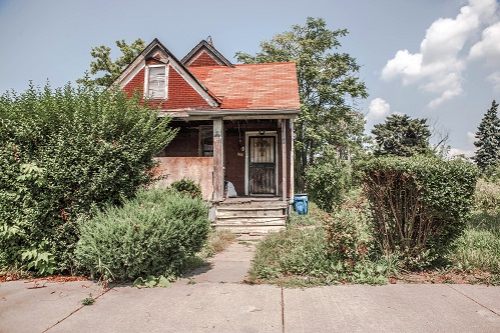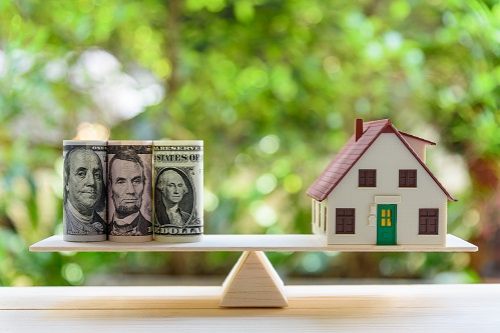How to file an insurance claim after a natural disaster
To file an insurance claim after a natural disaster, follow these steps, which include what to do in the immediate aftermath.
Ensure everyone is safe
Before you do anything else, ensure your family is safe, check on neighbors to see if help is needed and call emergency services if necessary. Move everyone to a safe location. Disaster assistance will be on the scene quickly, providing food, shelter and first aid as needed, so look for Red Cross signs if you need help.
Document the damage
With the initial needs after a disaster handled, take stock of the damage. Take photos and videos and make a list of what has been damaged or destroyed. If you have a home inventory created before the disaster or photos of the home before the damage, gather those as well.
Review your coverage
The type of natural disaster and the coverage you have available will help you decide where and how to file your claim. If the damage is due to flooding, and you have flood insurance, you'll file your claim with that company. If it's due to a tornado, your home insurance company is the place to call.
Contact your insurance company
“The first step toward recovery is filing your insurance claim and getting the claims process started,” says Logan McFaddin, vice president of state government relations for the American Property Casualty Insurance Association (APCIA), based in Tallahassee, Fla.
Call your insurance company and report the damage. The claims representative will instruct you as to the next steps. An adjuster will be assigned to review the claim, including assessing the damage and determining what's covered.
Get repair estimates
Your insurance company may recommend a contractor to do the work, but you can get a repair estimate from any company you choose. Getting more than one estimate isn't a bad idea; it will prevent disagreements with the adjuster about the actual cost of repairs. Bear in mind that this may not happen quickly; contractors will be overwhelmed. Estimates will be submitted to the insurance company, and the adjustor will review them to reach a settlement.
If you can’t reach your insurance company after a disaster
It may be entirely possible that in the wake of a hurricane or other major storm, your area may be without cell or internet service, and it is simply not possible to reach your insurer.
In such a case, keep detailed records of all damage and attempts at contact. Note anything that happened while you were unable to reach the company, such as:
- Further damage caused as an aftereffect of the disaster (a tree falling the next day, for example)
- Disruptions to utilities and services and when they were restored
- Efforts you made to mitigate damages
When a disaster like a hurricane is predicted, many insurance companies will reach out prior to the event to provide contact information, such as toll-free numbers, where mobile emergency units will be located, and the best ways to contact them.
Danny Sands, owner of Brightway Insurance, based in Jacksonville, Fla., says many of his clients received emails from their providers with such contact information before Ian hit. Providers will staff up to prepare for the ensuing calls. “Even so, you have to keep in mind that in such events, there is likely to be more damage than there are adjusters,” he says.
Next steps after filing a natural disaster claim
You should take reasonable steps to protect your property from further damage at this stage. Your policy requires you to do so and will reimburse you for reasonable costs.
- Make temporary repairs if it is safe to do so. If there are holes in your roof or broken windows, cover them as quickly as possible to prevent further damage.
- Save receipts for any materials purchased to handle repairs. Reimbursement will be part of your claim.
- Don’t throw away damaged items until an adjuster visits your home. Once you have reached an adjuster, they may provide you with virtual means, such as submitting photos or videos electronically, to keep the process as efficient as possible.
Be on guard against shady contractors
Homeowners are at their most vulnerable in the wake of a disaster; unfortunately, there are always those looking to capitalize.
McFaddin with the APCIA says to beware of contractors who ask for large amounts of money upfront or whose bids seem surprisingly low.
“Before signing any contracts for repair work, talk to your insurer first to make sure the damage is covered and then find a licensed, reputable contractor to do the work,” she adds.
What is covered by insurance after a natural disaster?
A homeowners policy will cover your home, any other structures on the property, and your belongings. Your policy has a replacement cost amount listed for the home, and other coverage is usually a percentage of that amount. For example, other structures are usually covered at 10% of the dwelling coverage.
Ultimately, the coverage you can expect from your provider will depend on your policy type. A guaranteed replacement cost policy will cover rebuilding your home, regardless of the cost.
On the other hand, extended replacement cost policies pay a stated amount over the policy limit, often 25% or more. If building costs are higher than expected (as they often are following disasters), you will have extra funds to cover the bill.
Actual cash value means the claim is paid using a replacement cost minus depreciation calculation. If, for example, your eight-year-old washing machine is damaged beyond repair, an actual cash value policy would only pay a part of the replacement value because it has eight years of wear and tear.
Most homeowners policies cover the dwelling at replacement cost and personal property at actual cash value.
What else does homeowners insurance cover?
Other expenses to talk to your adjuster about may include:
- Temporary living expenses. If you can’t live in your home because of the damage, your provider will pay for reasonable additional living expenses. Among items typically covered are eating out, hotels, services (such as phone, utilities), and extra transportation costs.
- Compensation for collateral damage. If your vehicle is damaged, this will most likely be covered by your auto insurance policy. If trees, shrubs or outlying buildings have been damaged, you will have some coverage. Discuss this with your adjuster.
- Water damage. Most policies don’t cover flood damage; however, rain coming through a hole in the roof or a broken window caused by a storm is covered.
If you are filing a claim for a hurricane and there has been flooding in addition to other storm damage, the flood damage won't be covered by home insurance. You must file a separate claim for flood damage if you have flood insurance. In addition, if there has been a Presidential Disaster Declaration, additional disaster assistance will be available through FEMA.
Apply for assistance and file claims as soon as possible, as the overwhelming need after a disaster creates backlogs and slows the process.




